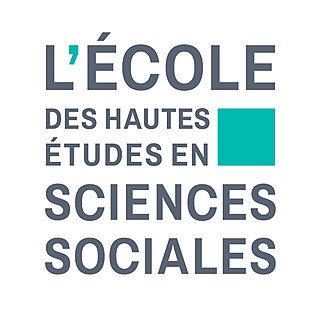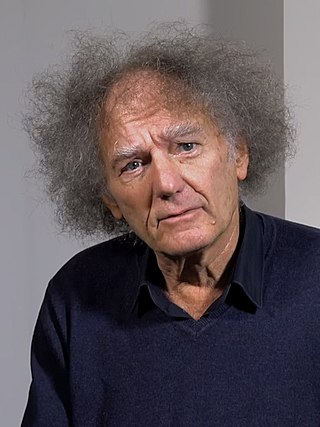Related Research Articles

Pierre-Félix Guattari was a French psychoanalyst, political philosopher, semiotician, social activist, and screenwriter. He co-founded schizoanalysis with Gilles Deleuze, and ecosophy with Arne Næss, and is best known for his literary and philosophical collaborations with Deleuze, most notably Anti-Oedipus (1972) and A Thousand Plateaus (1980), the two volumes of their theoretical work Capitalism and Schizophrenia.

Jean-François Lyotard was a French philosopher, sociologist, and literary theorist. His interdisciplinary discourse spans such topics as epistemology and communication, the human body, modern art and postmodern art, literature and critical theory, music, film, time and memory, space, the city and landscape, the sublime, and the relation between aesthetics and politics. He is best known for his articulation of postmodernism after the late 1970s and the analysis of the impact of postmodernity on the human condition. Lyotard was a key personality in contemporary continental philosophy and authored 26 books and many articles. He was a director of the International College of Philosophy founded by Jacques Derrida, François Châtelet, Jean-Pierre Faye, and Dominique Lecourt.

Bernard-Henri Georges Lévy is a French public intellectual. Often referred to in France simply as BHL, he was one of the leaders of the "Nouveaux Philosophes" movement in 1976. His opinions, political activism and publications have also been the subject of several controversies over the years.
In France, the agrégation is the most competitive and prestigious examination for civil service in the French public education system. Successful candidates become professeurs agrégés and are usually appointed as teachers in secondary schools or preparatory classes, or as lecturers in universities.

The School for Advanced Studies in the Social Sciences is a graduate grande école and grand établissement in Paris focused on academic research in the social sciences. The school awards Master and PhD degrees alone and conjointly with the grandes écoles École normale supérieure, École polytechnique, and École pratique des hautes études.

The Lycée Henri-IV is a public secondary school located in Paris. Along with the Lycée Louis-le-Grand, it is widely regarded as one of the most prestigious and demanding sixth-form colleges (lycées) in France.

Michel François Jacques Châtelet was a historian of philosophy and political philosophy, philosopher and professor in the socratic tradition. He was the husband of philosopher Noëlle Châtelet. Châtelet was also a co-founder of the influential French political philosophy journal Arguments.
Pierre Emmanuel Vidal-Naquet was a French historian who began teaching at the École des hautes études en sciences sociales (EHESS) in 1969.

The Postmodern Condition: A Report on Knowledge is a 1979 book by the philosopher Jean-François Lyotard, in which the author analyzes the notion of knowledge in postmodern society as the end of 'grand narratives' or metanarratives, which he considers a quintessential feature of modernity. Lyotard introduced the term 'postmodernism', which was previously only used by art critics, into philosophy and social sciences, with the following observation: "Simplifying to the extreme, I define postmodern as incredulity towards metanarratives". Originally written as a report on the influence of technology in exact sciences, commissioned by the Conseil des universités du Québec, the book was influential.
20th-century French philosophy is a strand of contemporary philosophy generally associated with post-World War II French thinkers, although it is directly influenced by previous philosophical movements.
The Manifesto of the 121, was an open letter signed by 121 intellectuals and published on 6 September 1960 in the magazine Vérité-Liberté. It called on the French government, then headed by the Gaullist Michel Debré, and public opinion to recognise the Algerian War as a legitimate struggle for independence, denouncing the use of torture by the French army, and calling for French conscientious objectors to the conflict to be respected by the authorities.

Libidinal Economy is a 1974 book by French philosopher Jean-François Lyotard. The book was composed following the ideological shift of the May 68 protests in France, whereupon Lyotard distanced himself from conventional critical theory and Marxism because he felt that they were still too structuralist and imposed a rigid "systematization of desires". Drastically changing his writing style and turning his attention to semiotics, theories of libido, economic history and erotica, he repurposed Freud's idea of libidinal economy as a more complex and fluid concept that he linked to political economy, and proposed multiple ideas in conjunction with it. Alongside Gilles Deleuze and Félix Guattari's Anti-Oedipus, Libidinal Economy has been seen as an essential post-May 68 work in a time when theorists in France were radically reinterpreting psychoanalysis, and critics have argued that the book is free of moral or political orientation. Lyotard subsequently abandoned its ideas and views, later describing it as his "evil book".

François Dosse is a French historian and philosopher who specializes in intellectual history.

Socialisme ou Barbarie was a French-based radical libertarian socialist group of the post-World War II period whose name comes from a phrase which was misattributed to Friedrich Engels by Rosa Luxemburg in the Junius Pamphlet, but which probably was most likely first used by Karl Kautsky. It existed from 1948 until 1967. The animating personality was Cornelius Castoriadis, also known as Pierre Chaulieu or Paul Cardan. Socialisme ou Barbarie is also the name of the group's journal.
Jean-Paul Enthoven is a French publisher and journalist.
Éditions Galilée is a French publishing house in Paris, and was founded in 1971 by Michel Delorme. It specializes in philosophy, French literature, arts and human sciences. Focusing on the deconstructionist thought of Jacques Derrida, Galilée also publishes works on postmodernist thought.
The Appel du 18 joint is a manifesto calling for the legalization of cannabis in France, published on 18 June 1976 in the daily Libération.
Les cahiers de la photographie, published between 1981 and 1994, was a French magazine devoted to photography with the goal of promoting criticism of contemporary photography.
References
- ↑ Bernard-Henri Lévy, Left in Dark Times , Random House Publishing Group, 2008, p. 43.
- ↑ Lacroix, Justine (2018). Human Rights on Trial: A Genealogy of the Critique of Human Rights. Cambridge University Press. pp. 27–28. ISBN 9781108334884.
- ↑ Gayatri Chakravorty Spivak and Michael Ryan (June 1978). "Anarchism Revisited: A New Philosophy". Diacritics, 67-68
- ↑ Oskar Negt and Jamie O. Daniel (1983) "Reflections on France's 'Nouveaux Philosophes' and the Crisis of Marxism". SubStance 11(4), 56-67
- ↑ Gilles Deleuze, « Les nouveaux philosophes », supplément au n° 24 de la revue Minuit, repris dans Deux régimes de fous, Minuit, p. 132.
- ↑ "La critique du Testament de Dieu de Bernard-Henry Lévy (1979) - Pierre Vidal-Naquet". www.pierre-vidal-naquet.net.
- ↑ Pierre Bourdieu, « Le hit-parade des intellectuels français, ou Qui sera juge de la légitimité des juges ? », Homo academicus, Minuit, 1984, annexe 3.
- ↑ Éric Aeschimann, « Mao en chaire », Libération , 10 January 2007.
- ↑ Jean-François Lyotard, Instructions païennes, Éditions Galilée, 1977. Le groupe des nouveaux philosophes, dont Lyotard analyse les pratiques discursives, est ici appelé la Cie Clavel . Cf. aussi du même, La condition postmoderne, Minuit, 1979, et Le postmoderne expliqué aux enfants (1982–1985), Galilée, 1988.
- ↑ Christos Memos. "Castoriadis and Social Theory: From Marginalization to Canonization to Re-radicalization". In: Alex Law and Eric Royal Lybeck (eds.). Sociological Amnesia: Cross-currents in Disciplinary History. Palgrave Macmillan, 2015. p. 190.